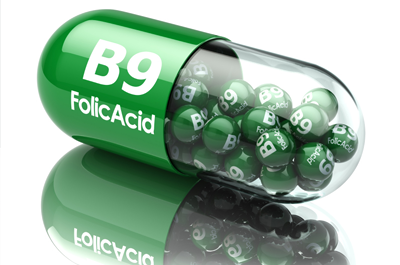Combining Quetiapine, Lamotrigine May Reduce Bipolar Depression
Abstract
Addition of lamotrigine to quetiapine therapy helped lower depressive symptoms associated with bipolar disorder after 12 weeks, but folic acid supplements counteracted this positive effect.
While periods of mania are a major characteristic of bipolar disorder, evidence suggests it is the depressive symptoms that contribute to most of the long-term disability associated with this condition. However, the use of antidepressants in bipolar therapy—especially for long-term maintenance—remains controversial.

Some studies suggest that antidepressants may lead to relapse of mania, while others suggest the medications may increase the risk of future depressive episodes.
In contrast, Jay Amsterdam, M.D., head of the Depression Research Unit at the University of Pennsylvania Perelman School of Medicine, and colleagues found evidence to suggest that the serotonin-norepinephrine reuptake inhibitor venlafaxine was at least as effective as lithium as a maintenance therapy in regards to risks of new depressive or manic symptoms.
Antipsychotics such as quetiapine may be another option for patients. While they are effective for acute bipolar depression, there is not much evidence for their long-term efficacy. Likewise, lamotrigine is approved to help prevent relapse of bipolar depression, but there is uncertainty about how well it works in the acute phase of bipolar depression, given that it requires a slow titration period to reach an optimal dose.
A study published in Lancet Psychiatry now suggests that combining these two agents might offer sustained benefits for patients.
In a randomized trial, 202 participants with bipolar depression with a recent acute depressive episode received lamotrigine (titrated up to 200 mg daily per FDA recommendations) or placebo as well as 500 microgram of folic acid or placebo daily in addition to quetiapine (minimum daily dose of 150 mg).
According to lead author John Geddes, M.D., a professor of psychiatry at the University of Oxford, folic acid, which is a key supplement taken during pregnancy, was included in the trial because lamotrigine is known to decrease levels of this nutrient in the body.
At 12, 22, and 52 weeks after initiation, the group taking adjunct lamotrigine showed more improvements in their depression scores (measured by the Quick Inventory of Depressive Symptomology, self-report version 16 [QIDS-SR16]) than those in the placebo group; however, these values were not significant until the 52-week assessment.
The researchers also observed a significant interaction between folic acid and lamotrigine, as the subgroup that received both compounds had no discernible reduction in QIDS scores after 12 weeks, while the participants taking lamotrigine and placebo had an average QIDS reduction of over 4 points.
“This was unexpected,” Geddes said. “While we know that lamotrigine can interfere with folate levels, there has not been any research to our knowledge suggesting the reverse occurs as well.”
As Geddes noted in the article, such an interaction is certainly plausible, though, and might arise from competition for the same biological receptor and/or folate inhibiting the absorption of lamotrigine into the bloodstream.
He added that the levels of folate used in this trial were comparable to what is found in vitamin supplements, though an intriguing question that remains is whether a lower concentration of folate received from fortified grains (as is done in the United States where a typical person might receive around 100 μg daily from their diet) also has pharmacokinetic effects.
“These findings by Geddes and colleagues suggest that the presence of folic acid appears to nullify the therapeutic effect of lamotrigine in bipolar depression,” said Joseph Calabrese, M.D., director of the Mood Disorders Program at Case Western Reserve University School of Medicine.
Calabrese, who served as a reviewer of the paper by Geddes and colleagues, noted that lamotrigine has a long half-life in the body (approximately 24 hours) and said it would be worthwhile to explore how the blood levels of lamotrigine are affected by the presence of folic acid.
“However, in the clinical management of treatment-refractory bipolar depression, I think it might be useful to minimize and/or remove folic acid from one’s diet in the presence of lamotrigine non-response,” he told Psychiatric News.
In regard to other symptoms or safety aspects of this combination treatment, the researchers found no increased risks of adverse events between the groups, no differences in quality of life, and no differences in the emergence of new mania. The patients on lamotrigine did experience slightly higher rates of low-level manic symptoms after 12 weeks, but this difference went away at 22 and 52 weeks.
This clinical study, called CEQUEL, was funded by the Medical Research Council. ■



